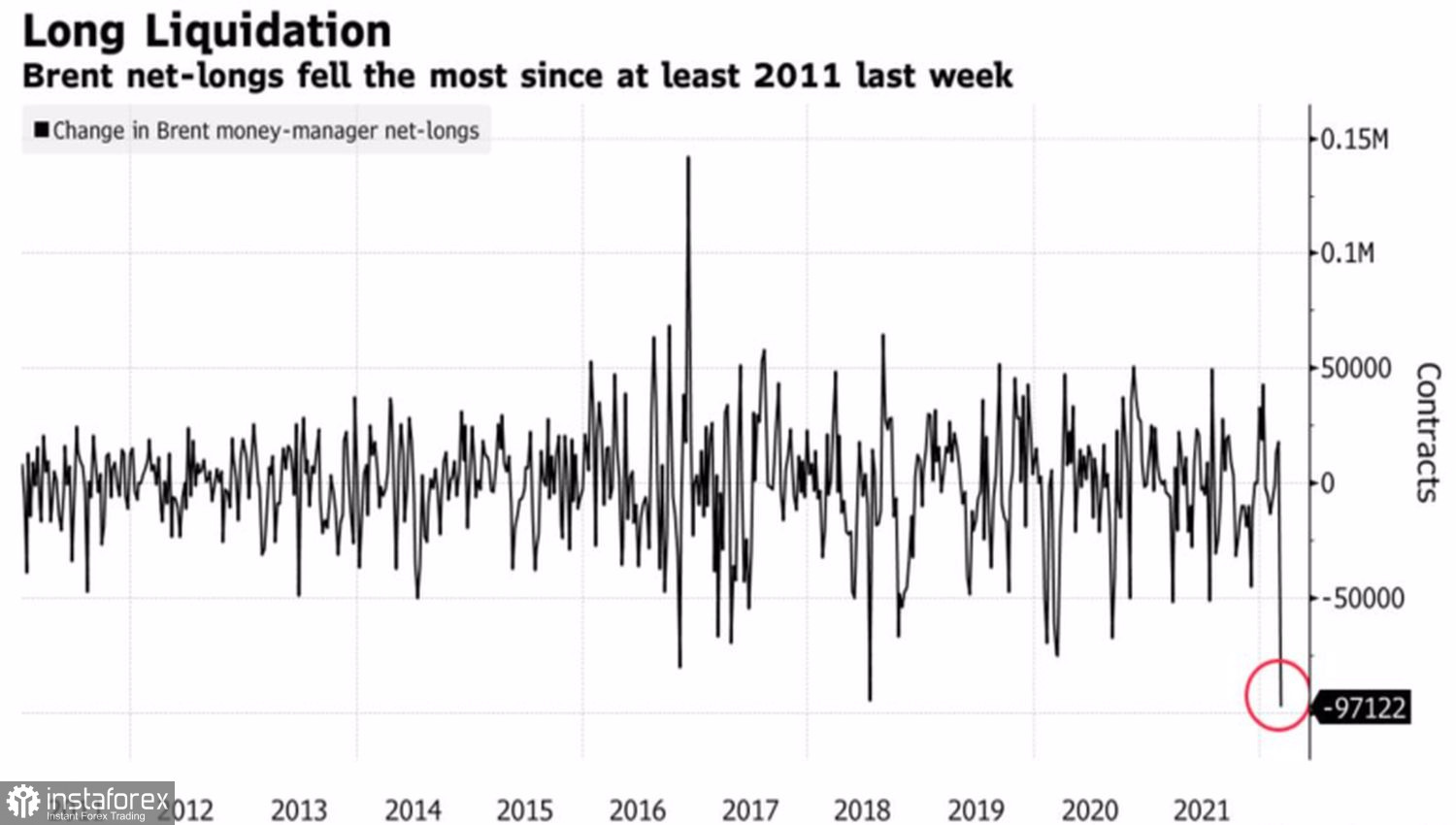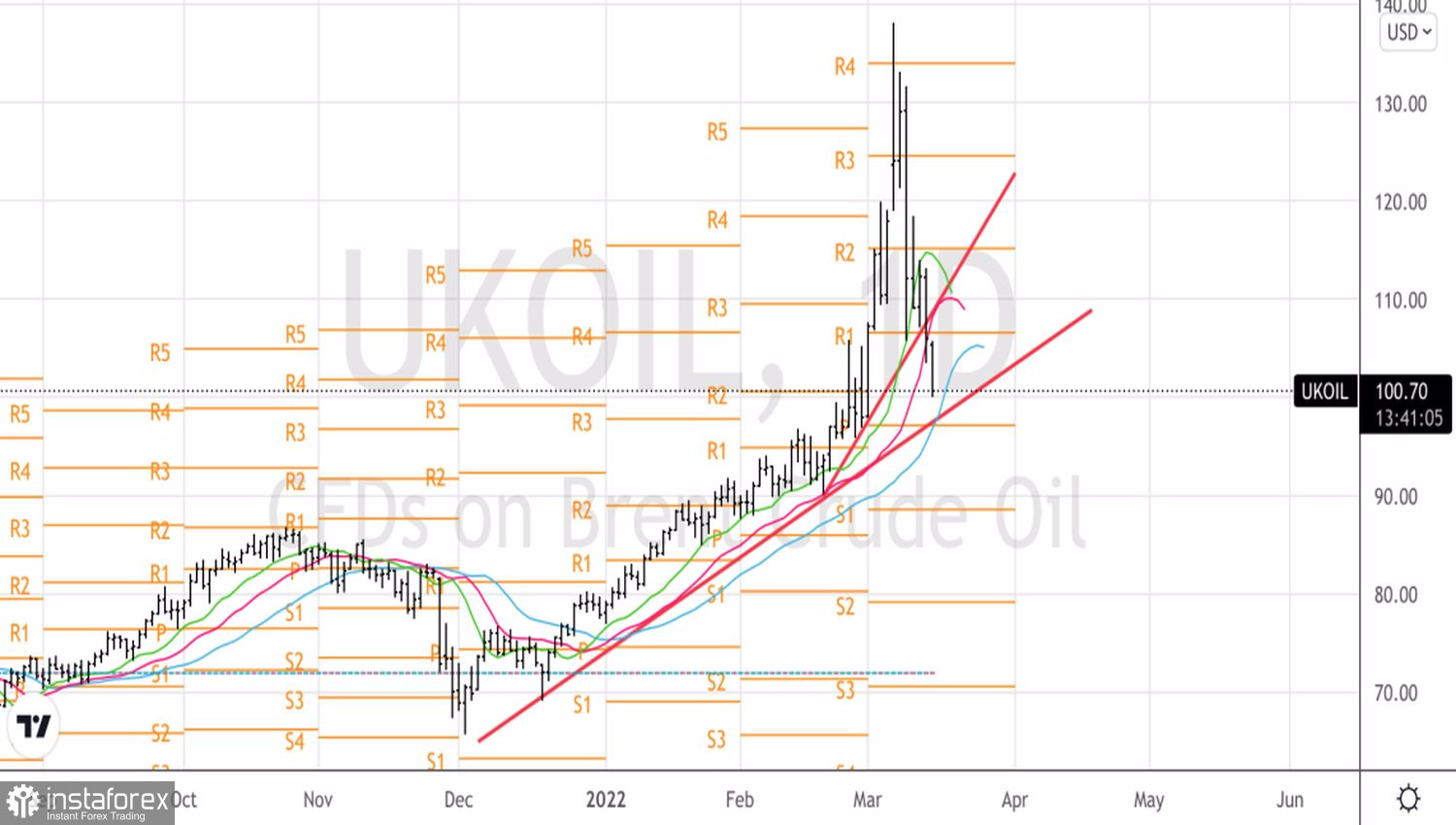It seems that the times when oil prices depended on whether the Sheikh of Saudi Arabia sneezed or not are returning. While Russia is conducting a military operation, and the United States is imposing sanctions against it, the statement of the Minister of Energy from Riyadh that speculators should bet against black gold with the addition of an emotional "damn it" played a role. In the week of March 8, hedge funds reduced net longs for Brent at the fastest pace since 2018. At the same time, sales of the North Sea variety turned out to be the largest since 2016. So don't believe that Saudi Arabia decides everything on the oil market.
Dynamics of speculators' net positions on oil

The activity of the "bears" triggered an avalanche of stop orders for long positions, against which Brent immediately collapsed by $25 per barrel at auction on March 9. Formally, the main drivers of its collapse were the progress in negotiations on a peaceful settlement of the conflict between Russia and Ukraine, which theoretically could lead to an increase in oil supply, as well as information about the largest outbreak of COVID-19 in China, which is sure to adversely affect global demand. Oil was added to the fire by the message from OPEC that there is currently no shortage in the market.
The number of people infected with coronavirus in China is almost doubling every day, which forces Beijing to close entire cities. As a result, Morgan Stanley lowered the country's GDP forecast for the first quarter from +0.6% to zero, for 2022 - from 5.3% to 5.1%, which is below the official target of 5.5%. China is the largest consumer of oil in the world, so lockdowns can lead to a reduction in global demand, rumors about which contribute to a decline in Brent quotes. The same is true of the Fed. If it goes too far with the tightening of monetary policy, the US economy will approach the abyss of recession, which will also negatively affect the global consumption of black gold.
The problems with the offer do not look as terrible as previously assumed. Not all buyers are ready to give up Russian oil. Producers in this country are developing flexible payment mechanisms. India, in order not to lose a key partner, is creating a payment mechanism using its currency, and the most likely outcome for black gold supplied from the Russian Federation is its storage on tankers near Singapore and Malaysia until better times. In addition, some progress is allegedly planned in the negotiations between Kyiv and Moscow, which is another argument in favor of sales of the North Sea variety.
Of course, the geopolitical conflict in Eastern Europe has brought oil too high. And as you know, who flies high, falls painfully. Nevertheless, from a fundamental point of view, the market remains strong. Its increased attention to headlines from Ukraine leads to increased volatility. As a result, after a rapid roller coaster, Brent risks falling into consolidation in the range of $95-115 per barrel.
Technically, there is a pattern of "surge and reversal with acceleration" on the daily oil chart. The rebound from the supports at $98 and $97 per barrel will be a signal for the opening of longs.
Brent, the daily chart

 English
English 
 Русский
Русский Bahasa Indonesia
Bahasa Indonesia Bahasa Malay
Bahasa Malay ไทย
ไทย Español
Español Deutsch
Deutsch Български
Български Français
Français Tiếng Việt
Tiếng Việt 中文
中文 বাংলা
বাংলা हिन्दी
हिन्दी Čeština
Čeština Українська
Українська Română
Română

